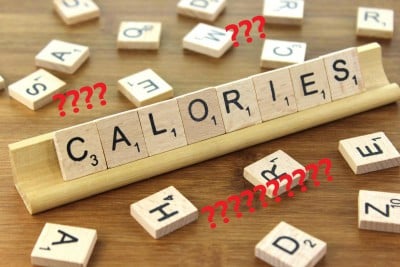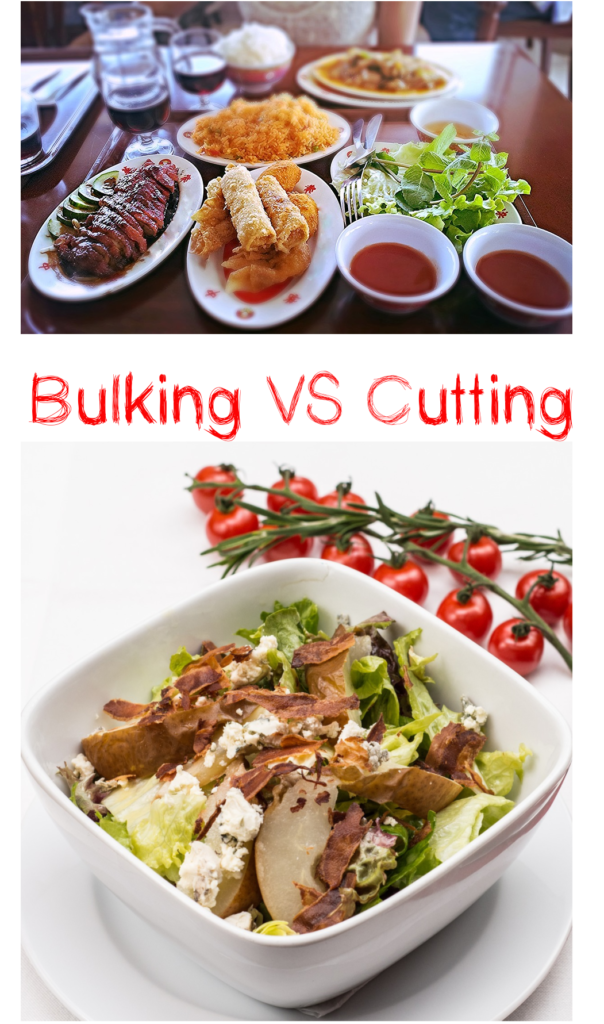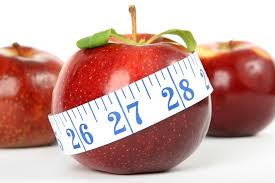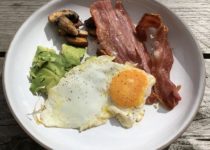How Many Calories Do I Need To Build Muscle?
The relationship between caloric intake & muscle growth has been quite controversial on the internet. On one side there is the perspective that calories don't really matter, while others have the opinion that you won't gain muscle unless you are in a caloric surplus.
But what is the true answer?


Both Sides Share Truths & Misconceptions!!!
In fact, you can easily gain muscle even in a caloric deficit! On the other hand, you can gain muscle faster in a caloric surplus.
This has been proven & tested, but was one of the most controversial topics amongst social media/mainstream magazines.
Especially since bodybuilders follow a bulking & cutting rhythm people started to think that it is the only way to get a lean physique. But in reality, this system is only used as it is the most effective if you want to get this type of almost unnatural ripped look.
But you can easily have an impressive physique & body without having the two phases, while the advantage would be that you don't have a phase where you have higher body fat.
If being a bodybuilder isn't your primary goal, but you rather want a shredded look throughout the entire year, you should consider reading my article on how to lean bulk.
Below you are going to have a more detailed explanation of why gaining muscle in a caloric deficit is possible & nearly as effective as bulking & cutting.
The Science Behind Gaining Muscle
There is a misconception between gaining muscle and your caloric intake. On the one hand, you are going to lose fat if you are in a caloric deficit. Furthermore, you will gain fat if you are in a caloric surplus.
But fortunately being in a caloric deficit doesn't necessarily mean that you can't gain muscle!
The amount of muscle that you gain heavily depends on your Nitrogen balance. Nitrogen primarily comes from the 8 essential amino acids which you find in protein.
Therefore your protein intake is far more important to decide if you are going to gain muscle or not. On the other hand, there are other factors that negatively affect your nitrogen balance.
Overtraining
One common reason leading to a muscle gain plateau is overtraining. When performing physical exercise at high intensity your body naturally breaks down the muscle tissue, in order to "repair" it, which makes your muscle strongers.
This process of recovery requires nitrogen, which you get from protein. But since there is only a limited amount of Nitrogen that your body can use (No matter how high your protein intake!), your nitrogen balance will go low.
Especially if you train at very high intensities you need to respect resting periods! Which leads us to another common problem.
Poor Sleep
Training is only there to stimulate your muscles & brain, but the actual growth process primarily happens in your sleep! Therefore it is important to get 7-8 quality hours of sleep every single day! Furthermore, you should try to keep your sleeping rhythm as stable as you can, without shifting it for more than 2 hours to increase the quality of your sleep!
So after reading this, you might be wondering why there are still a lot of people using cutting & bulking phases.
But there are two main reasons
- They don't know that bulking & cutting can be done simultaneously
- They want to gain muscle even faster
Reason number 2 already gives another hint that caloric intake can have an influence!
Caloric Intake Plays A Role As Well!
Especially if you are in a massive caloric deficit, your body will start using every single resource to fuel itself.
The problem with that is, that despite burning fat, your body might actually use the protein that you eat as a source of energy.
Therefore you will end up not being able to use all the protein for muscle growth, which can cause stagnation in terms of muscle growth.
When being in a caloric surplus on the other hand you know for sure, that your body is going to use all the protein that it can handle to build muscle.

But unless you want to lose fat extremely fast, a slight caloric deficit will not make you progress significantly slower!
So now you basically have two options:
Traditional Bulking & Cutting System
Lean Bulking
It is up to you for which of the two techniques you are going to decide! They both have their advantages & disadvantages, which you can find right below!
The Fast Way - Bulking & Cutting
In fact, the traditional system of bulking & cutting is going to be the fastest way if you want to gain muscle as quickly as possible, which is a huge advantage.
On the other hand, there are quite a few problems & complications, that this system inherits.
You need two different diets
Since you have two different phases, each phase is going to need a different amount of calories & even ratio of macronutrients.
Planning the two different diets can be more complicated for people just starting out with fitness.
Two different looks
For some people, it can be quite annoying that you look in shape for two months, and then gain a lot of fat during the next couple of months.
Can be more challenging
Especially the cutting phase can be quite harsh as you need to be in a big caloric deficit in order to be able to burn all the fat that you gained. At the same time, your protein intake has to be really high to stay in a positive nitrogen balance. All those factors together will make it harder to stick with this type of diet.
The Slow & Steady Way - Stay Lean
In most cases bulking & cutting is going to make more sense at the same time, due to these advantages:
Easier for Beginners
Since you only follow one set diet, it is going to require less knowledge but also willpower to follow the diet. Scheduling meals will be easier. Overall especially beginners tend to stick better to this type of diet.
Lean Physique throughout the Year
Another big advantage is that once you acquired the lean look that you want, you will maintain this physique for the rest of your life. (or until you stop training). Especially if you do other sports on the side, the fat can be a hindrance to your physical performance, which is why it often makes more sense to stay lean.
More healthy for your body
Especially if you do bulk & cutting extensively, whereas the two extremes are very far apart, your body might find it challenging to shift between the two diets.
Since a change from 3500 calories to 1500 is going to be tough your body may take damage in very rare cases. On the other side following a set plan for a long time, will leave your body the time it needs to adapt to your diet plan.
Personal Advice
In most scenarios, it is the easiest and best to stick with one diet, while lean bulking. On the other hand, there are some cases where the bulking & cutting scheme will be better which include.
- Achieving a competitive (Bodybuilding) physique for & in a short time
- You need to lose a lot of weight
For bodybuilders, the bulking & cutting system will work best as it has the potential to give you almost surreal physiques. On the downside, this look will only last for a short span since it is too tough for your body to maintain such high muscle mass with extremely low body fat percentages
On the other hand, staying in a slight caloric deficit or even in at your natural caloric intake can lead to fast & efficient muscle gain while having a slight fat loss.
This method will be best if you already are in fairly good shape and don't need to burn tons of fat. On the other hand, if you aren't in the best shape, it often works best to start in a bigger caloric deficit and then slowly lower the deficit while you get more and more in shape.
In the end, it is up to you which method to chose, as both have their advantages & disadvantages. Some people also might enjoy the two extremes of eating a lot and then eating very little. Therefore it isn't possible to tell you which of the two methods you should follow.
So How Many Calories Do I Need?
You might have noticed that I haven't given away to calculate the calories that you need.
The reason is that it is quite hard or maybe even impossible to calculate an excellent number that suits you best.
But I can give you the tools to estimate the right caloric intake for you. The next step would be to try different caloric intakes to see what works best for you.
Some of the aspects you have to keep in mind are:
- How high is your body fat?
The higher your body fat, the more you should work towards a caloric deficit, since it is likely that your metabolism is slow.
- How much muscle do you want to gain?
If you want to gain a lot of muscle fast you shouldn't limit yourself from eating a little bit too much. It makes it easier to have a high enough protein intake while making sure your body uses all the protein for muscle growth.
- Do you have/want to stay completely lean?
In case you don't mind gaining a bit of fat that you then burn afterwards you can increase your caloric intake. But if you need to lose fat or maintain your body fat you should be in a slight caloric deficit without neglecting protein

Once you've figured out these essential steps you should use a calorie calculator, that integrates your activity level.
Depending on how much weight you need to lose you should eat roughly 10-40% less than what the calorie calculator gives you as a result.
So if you are just maintaining your current body fat it is best to be right below your recommended caloric intake. But in case you want to lose more than 10 pounds, within a short span, you should aim to be in a higher caloric deficit.
Conclusion:
As you know by now calories are often overrated when it comes to fat loss. Unless you truly are a hard gainer, I recommend you to either be in a slight caloric deficit or to be on "neutral".
If you plan on losing weight while bulking, you should increase the deficit, while if you aren't bothered about gaining fat & want to build muscle as quickly as possible you should increase your caloric intake.
Keep in mind that having the right protein is more important & also think about macro and micronutrients!
If you have any questions left, you can leave a comment below! Also, share this article with your friends if they could find it helpful!


